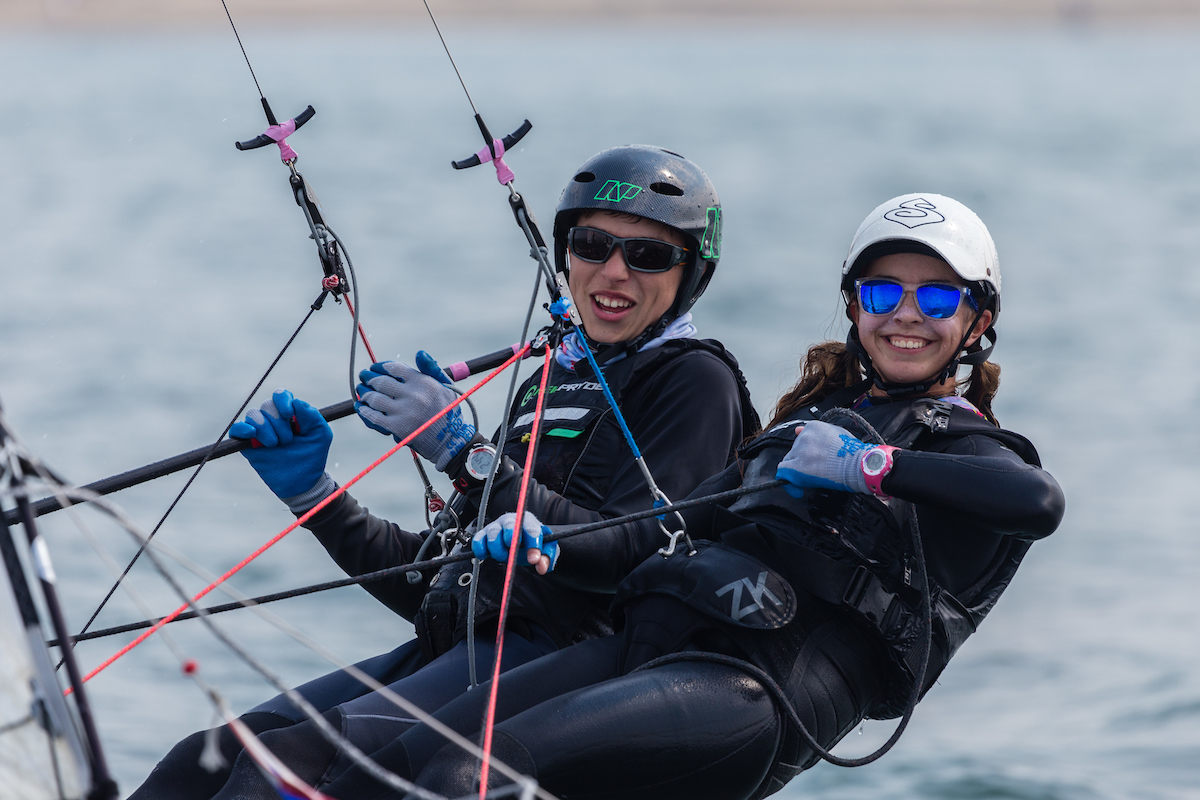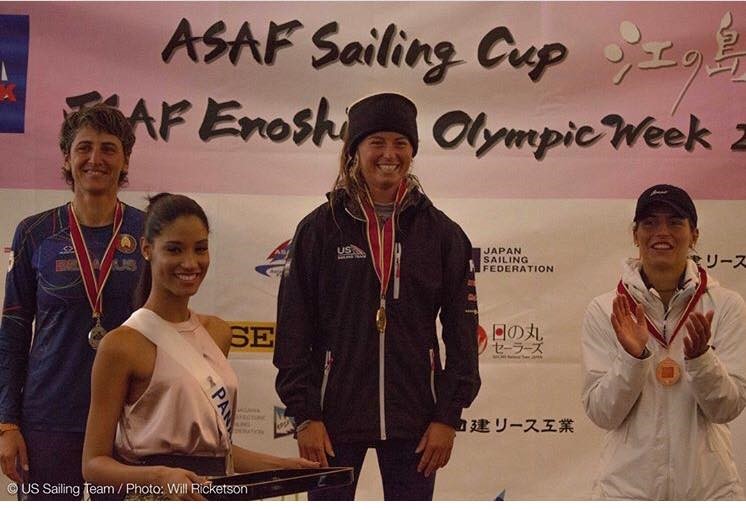
Jack Sutter & Charlotte Versavel rip it up on the Bay
Without a doubt, a 2017 highlight for experienced youth sailors was the first regionally-focused Olympic Development Heavy Weather Clinic held in September and hosted by the St Francis Yacht Club (with the support of the St. Francis Sailing Foundation and the Belvedere Cove Foundation). 40 youth sailors ages 15-20 from around the country attended the 3-day camp. Significantly, it was first time that US Sailing extended participation in its training camps to local regional programs.
The goal was to have ODP coaches and sailors work alongside the local sailors and coaches to encourage collaboration and knowledge sharing on both levels. Participants were on the water from 10-2pm daily sailing 29ers, Lasers and Nacras, followed by a debrief. Coaches included Grant Spanhake, Kevin Hall, David Liebenberg, Dane Wilson, Caleb Paine, Mark Andrews and Pete Melvin. Here, San Francisco Bay Area sailors Jack Sutter, Charlotte Versavel, Will Glasson and Chloe Holder reflect on their experience.
15-year old Jack Sutter from Benecia, Calif., is a member of the St FYC and RYC. He’s a sophomore at St. Patrick-St Vincent High School. Jack sailed the clinic in the Nacra 15 with crew Charlotte Versavel.
“Our coaches, Leandro Spina and Pete Melvin (designer of the Nacra) were always helpful and we learned so much from them. The boat is very new and there are many different ways to sail it. It’s exciting to sail a new boat design where you are allowed to discover new techniques and the fastest way to sail the boat. The coaches helped us refine our upwind and downwind sailing as well as tuning and adjusting the boat for its best performance. The boat has so many ways to depower and we learned all about it in very descriptive powerpoint presentations and morning meetings.

Rigging under watchful eye of Caleb Paine, Olympic bronze medalist
The coaches were always around for questions no matter what class they were teaching. Each day Charlotte and I had many questions and we always discovered something new. The conditions at the city front were completely random. I’ve never sailed upwind with 90 degree hot air in my face on San Francisco Bay! The second day we had more wind but the last day was nuking and choppy. In the afternoon of the last day we sailed the boats across the bay to Richmond Yacht Club. It was very windy and sketchy but the best downwind sail ever! Charlotte and I were so stoked on sailing the city front and ripping around the Bay!”
14-year old Charlotte Versavel from Palo Alto, Calif., is a member of the St. FYC and RYC, and a 9th grader at Palo Alto High School. Prior to the ODP Clinic, she and Jack practiced every weekend for over a month out of St. FYC, and were excited to compare their boat speed and maneuvers to the rest of the Nacra 15 fleet. The pair are aiming to represent St. FYC and the United States at the 2018 Youth Olympics in Buenos Aires.
“We were happy to find that our maneuvers were overall much better than most of the teams, and that our upwind boat speed was also really good. Downwind, Jack and I were unbeatable, which was awesome, especially considering the amount of time we have been sailing together, and the experience we have as a team. By observing the other teams, Jack and I figured out how to improve our accelerations a lot. We also learned that we will need to work more on our racing skills. The coaches, especially Pete, Fuzz, Adam, and Leandro, were really helpful, answering and explaining our questions and encouraging us to try new things on and off the water.

ODP training on the San Francisco city front
Jack and I want to thank the Foundation for providing us with coach and safety boats in the lead up and during the clinic. We would like to thank the Club for hosting the clinic, and for allowing us to keep our boat and trailer in the lot for over a month. We are grateful to US Sailing for putting on the Clinic and to Pam Healy for organizing it. We thank our coach Adam for challenging us to try out new things, and also our parents for driving and supporting.”
16-year old Chloe Holder is from San Anselmo, Calif., and is a junior at Redwood High School. She’s been sailing since she was 9 and currently sails out of St. FYC. She is looking forward to participating in college sailing in the future, so the clinic was an awesome opportunity for her.
“I learned a ton. We had amazing coaches and it was really great to compete against some of the best kids in the US. We had meetings every morning before sailing, and were able to apply what we learned in the boat. Every team improved greatly throughout the course of the weekend. It was an incredible opportunity and I learned a lot. Thanks to the St. Francis Sailing Foundation for sponsoring such a fantastic clinic.”

Caleb Paine shares his winning tips…
15-year old Will Glasson is a sophomore at Palo Alto High School and a junior member at St. FYC. He’s originally from Maine but has lived in California for the last six years. He started out sailing Opti’s at the Ventura Yacht Club then joined Molly Vandemoer’s program at the Peninsula Youth Sailing Foundation (Palo Alto, Calif.) when he moved to the area two years ago. There he got into FJ’s and Club 420s. About a year ago he started in the 29er Program at Richmond Yacht Club where he got hooked…
“It was probably the best decision I have made in my sailing career as it has opened up so many more opportunities. Since then I have attended CISA and competed in Midwinters West, US nationals, and 29er Worlds. The ODP Clinic was my first time sailing with my new partner, which faced us with many challenges such as communication, timing, and defining roles, all of which we improved greatly over the weekend with the help of all the great coaching we were receiving. By the end of the weekend, we were pretty much able to keep up with the rest of the group which was extremely rewarding.

ODP sailors experience all conditions on SF Bay
It was really refreshing to sail on city front and awesome to have such high-level coaches and sailors and a venue like StFYC. This allowed for one of the most productive clinics I have participated in. Thank you so much to everyone at US. Sailing and StFYC for putting a great clinic.”








